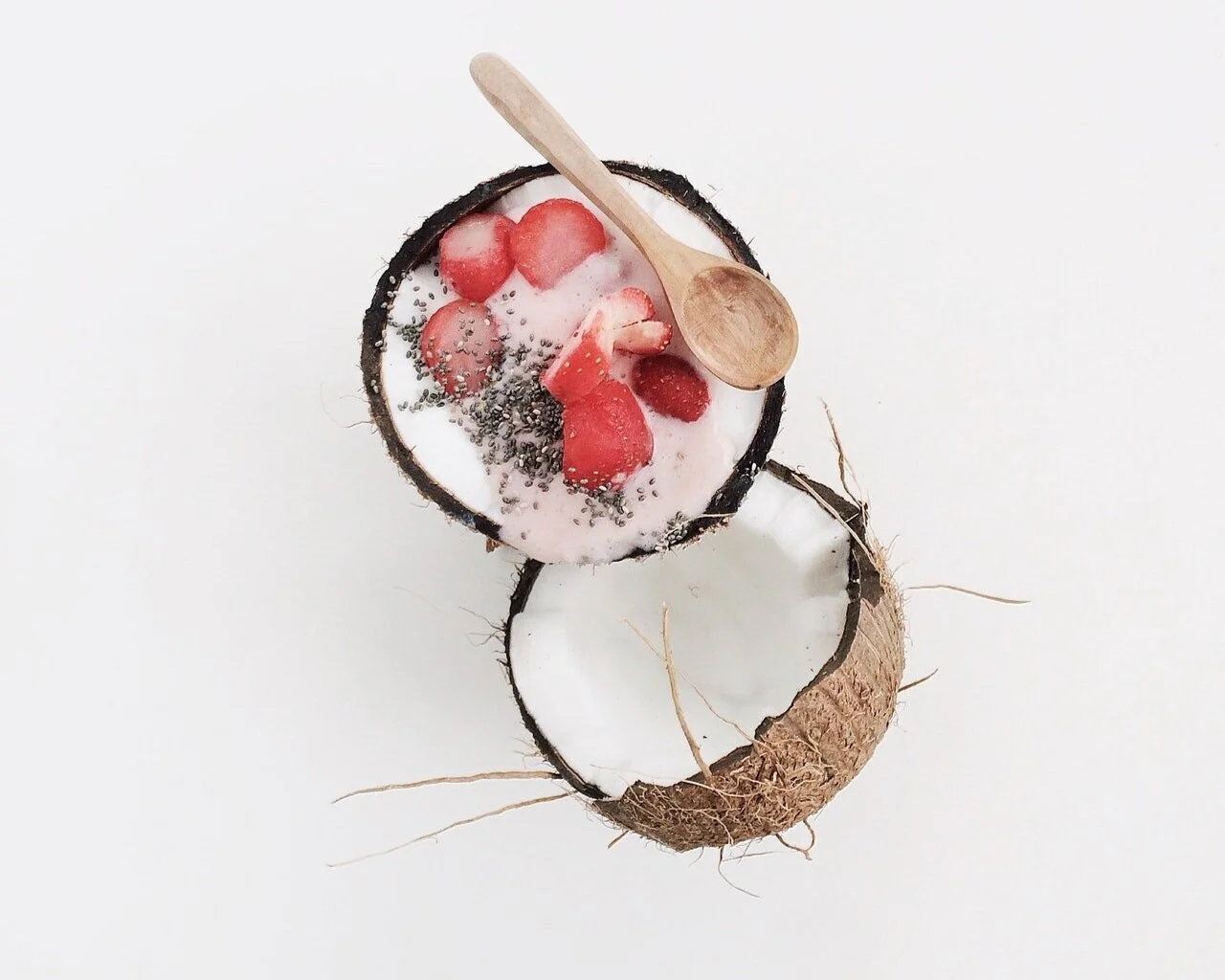Monolaurin and the Keto Diet
Disclaimer: The research below is offered for information and educational purposes only and is not intended to provide medical advice. See Terms & Conditions
Monolaurin and
the Keto Diet
What is the Ketogenic Diet?
The ketogenic diet, more commonly referred to as simply the “keto” diet, was developed in 1921 by Russel Wilder, as a treatment for epilepsy. It has since become increasingly popular as a weight loss diet. The body primarily relies on carbohydrates for energy production. However, when the body does not receive enough carbohydrates it undergoes a process called ketogenesis. Essentially, ketone bodies (water-soluble molecules containing the ketone group produced by the liver from fatty acids) are produced to replace glucose as an energy source and are used for energy production by the heart, muscle tissue, the kidneys, and even the brain while simultaneously reducing the storage of fat and glucose in the body. This combination of factors typically leads to weight loss as the body begins to burn fat for energy. [Ref #1]
Medium Chain Triglycerides (MCTs) and Monolaurin
As fat becomes the body’s main source of energy, a person on the keto diet must consume fat at each meal. In a typical daily 2,000 calorie-diet, this is around 165 grams of fat per day [Ref #2]. A good source of fats are medium-chain triglycerides (MCTs) or medium-chain fatty acids (MCFAs) such as lauric acid. Lauric acid is occurs naturally in coconut oil (comprising approximately 50% of the fatty acids contained therein), palm kernel oil, and mother’s breast milk. Coconut oil is an extremely versatile and edible oil that has been used for various purposes for centuries. The lauric acid from coconut oil, once ingested, becomes monolaurin. Monolaurin can be taken as a dietary supplement as an alternative or compliment to coconut oil. Coconut oil, and in turn monolaurin, has a variety of benefits - many of which make it uniquely suited to people on the keto diet. [Ref #3]
“Coconut oil is made up of about 90% saturated fats and 9% unsaturated fats. However, the saturated fats in it differ from saturated fats in animal fats. Over 50% of the fats in coconut oil are medium chain fatty acids, such as lauric acid (12:0). Coconut oil is the highest natural source of lauric acid. Lauric acid and its derivative monolaurin constitute around 50% of coconut fat-derived lipid.” [Ref #4]
For more in-depth information on monolaurin, visit the Complete Guide to Monolaurin.
MCFAs, Monolaurin, and
Keto
Medium-Chain Fatty Acids (MCFAs), Monolaurin, and the Keto Diet
As described above, monolaurin is derived from the medium-chain fatty acid Lauric Acid and therefore a potential source of fat for people adhering to the keto diet. A number of studies have looked into the benefits of medium-chain fatty acids particularly in terms of weight loss.
Hunger suppression
As with any diet, even if you are sticking to the rules, if you overeat you will counteract the benefits of the diet. Two studies conducted on overweight men found that medium-chain triglycerides (MCT) were more effective than other fatty acids in reducing food intake.
“Food intake at the lunch test meal after the MCT pre-load (Study 2) was (mean ± SEM) 532 ± 389 kcal vs. 804 ± 486 kcal after LCT (P < 0.05)….MCT consumption reduced food intake acutely but this does not seem to be mediated by changes in GLP-1, PYY, and insulin.” [Ref #5]
Reduction in body fat and weight loss potential
A study involving forty-nine overweight men and women between the ages of 19 and 50, compared the weight loss potential of both olive oil and MCT oil over sixteen weeks.
“Thirty-one subjects completed the study (body mass index: 29.8 ± 0.4, in kg/m2). MCT oil consumption resulted in lower endpoint body weight than did olive oil (−1.67 ± 0.67 kg, unadjusted P = 0.013). There was a trend toward greater loss of fat mass (P = 0.071) and trunk fat mass (P = 0.10) with MCT consumption than with olive oil. Endpoint trunk fat mass, total fat mass, and intraabdominal adipose tissue were all lower with MCT consumption than with olive oil consumption (all unadjusted P values < 0.05)…. Consumption of MCT oil as part of a weight-loss plan improves weight loss compared with olive oil and can thus be successfully included in a weight-loss diet. Small changes in the quality of fat intake can therefore be useful to enhance weight loss.” [Ref #6]
Essentially, the study found that the MCT oil led to a greater loss of fat than the olive oil. The study concluded that MCT oil would be a good addition to a weight-loss diets and useful in reducing fat.
Increased energy expenditure
One of the ways that medium-chain triglycerides impact weight loss is by increasing energy expenditure in the consumer. Energy expenditure is essentially the amount of energy you use in calories. One literature review looked into this process.
“Medium chain fatty acids (MCFA) are readily oxidized in the liver. Animal and human studies have shown that the fast rate of oxidation of MCFA leads to greater energy expenditure (EE). Most animal studies have also demonstrated that the greater EE with MCFA relative to long-chain fatty acids (LCFA) results in less body weight gain and decreased size of fat depots after several months of consumption. Furthermore, both animal and human trials suggest a greater satiating effect of medium-chain triglycerides (MCT) compared with long-chain triglycerides (LCT). The aim of this review is to evaluate existing data describing the effects of MCT on EE and satiety and determine their potential efficacy as agents in the treatment of human obesity. From the literature reviewed, we conclude that MCT increase energy expenditure, may result in faster satiety and facilitate weight control when included in the diet as a replacement for fats containing LCT.” [Ref #7]
The review found that MCFAs did increase energy expenditure, therefore making them effective tools in weight control. The explanation for this is that MCFAs are transported directly to the liver via portal blood, similar to a carbohydrate. Long-chain fatty acids, on the other hand, go through a series of processes and often are stored in adipose tissue [Ref #4]. In addition to this discovery, the review above found that MCFAs resulted in a greater satiating effect, meaning that subjects were less hungry after consuming less food.
Another review found a similar increase in energy expenditure with MCFAs. The review discovered that certain data signatures in animals and humans showed that after ingesting MCFAs energy expenditure was boosted. This strongly suggests that MCFAs have potential as weight loss agents.
“Fatty acids undergo different metabolic fates depending on their chain length and degree of saturation. The purpose of this review is to examine the metabolic handling of medium chain fatty acids (MCFA) with specific reference to intermediary metabolism and postprandial and total energy expenditure. The metabolic discrimination between varying fatty acids begins in the GI tract, with MCFA being absorbed more efficiently than long chain fatty acids (LFCA). Subsequently, MCFA are transported in the portal blood directly to the liver, unlike LCFA which are incorporated into chylomicrons and transported through lymph. These structure based differences continue through the processes of fat utilization; MCFA enter the mitochondria independently of the carnitine transport system and undergo preferential oxidation. Variations in ketogenic and lipogenic capacity also exist. Such metabolic discrimination is supported by data in animals and humans showing increases in postprandial energy expenditure after short term feeding with MCFA. In long term MCFA feeding in animals, weight accretion has been attenuated. These differences in metabolic handling of MCFA versus LCFA are considered with the conclusion that MCFA hold potential as weight loss agents. [Ref #8]
Additional
Health Benefits
Additional Health Benefits
In addition to the aforementioned benefits, medium-chain fatty acids have numerous additional health benefits. Coconut oil, especially, has been found to potentially help protect against numerous chronic health problems such as diabetes, cancer, and heart disease.
“Coconut oil has been shown to have the potential to protect against not only heart disease but a wide variety of chronic health problems including diabetes and cancer as well as a means to prevent and even treat infectious diseases...” [Ref #4]
As mentioned earlier, the keto diet was originally created to treat epilepsy. Other studies are investigating the effects of the ketogenic diet and MCTs on the brain. One study, involving 422 participants, studied the effects of medium-chain triglycerides on Alzheimer’s patients.
“Twelve records (422 participants) were included. Meta-analysis of RCTs showed that, compared with placebo, MCTs elevated beta-hydroxybutyrate [MD = 0.355; 95 % CI (0.286, 0.424), I2 = 0 %], showed a trend towards cognitive improvement on ADAS-Cog [MD = −0.539; 95% CI (−1.239, −0.161), I2 = 0 %], and significantly improved cognition on a combined measure (ADAS-Cog with MMSE) [SMD = −0.289; 95 % CI (−0.551, −0.027), I2 = 0 %]…In this meta-analysis, we demonstrated that MCTs can induce mild ketosis and may improve cognition in patients with mild cognitive impairment and Alzheimer’s disease.” [Ref #9]
The research found promising signs of improved cognitive function in patients with mild impairment and the mild ketosis resulting from MCT consumption. This is an exciting development and more studies are being conducted to observe the effects of the keto diet on brain function.
Conclusion
Conclusion
These studies, among others, offer a fascinating look at the use of medium-chain fatty acids, such as monolaurin and lauric acid, in conjunction with the keto diet. Existing studies are promising but more remains to be discovered about the connection between these fats and potential health impacts associated to the ketogenic diet.
Monolaurin Safety
As with all dietary supplements, monolaurin should be taken under the direction and supervision of a healthcare professional. Individuals are advised consult a medical professional to assist in the selection and use of dietary supplements.
Considering monolaurin but not sure where to start? Consider some of the information in the Buying Guide.
Looking to buy monolaurin? Check out some of the products listed on this external Shop Monolaurin website.
References
Masood, Wajeed, et al. Ketogenic Diet. StatPearls, 2020.
“Should You Try the Keto Diet?” Harvard Health Publishing, Harvard Medical School, Oct. 2018.
Ezigbo, Veronica O, and Emanuella A Mbaegbu. “Extraction of Lauric Acid from Coconut Oil, Its Applications and Health Implications On Some Microorganisms.” African Journal of Education, Science, and Technology, Apr. 2016.
Boateng, Laurene, et al. “Coconut oil and palm oil's role in nutrition, health and national development: A review.” Ghana medical journal, 2016.
St-Onge, M-P et al. “Impact of medium and long chain triglycerides consumption on appetite and food intake in overweight men.” European journal of clinical nutrition, 2014.
St-Onge, Marie-Pierre, Aubrey Bosarge. “Weight-loss diet that includes consumption of medium-chain triacylglycerol oil leads to a greater rate of weight and fat mass loss than does olive oil.” The American journal of clinical nutrition, 2008.
St-Onge MP, Jones PJ. “Physiological effects of medium-chain triglycerides: potential agents in the prevention of obesity.” The Journal of Nutrition, Mar. 2002.
Papamandjaris, AA, et al. “Medium chain fatty acid metabolism and energy expenditure: obesity treatment implications.” Life Sciences, 1998.
Avgerinos, Konstantinos I, et al. “Medium Chain Triglycerides induce mild ketosis and may improve cognition in Alzheimer's disease. A systematic review and meta-analysis of human studies.” Ageing Research Reviews, 2020.



